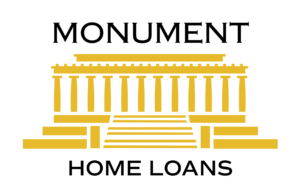Retirement just got better: tap into your home's equity with a Monument Home Loan Reverse Mortgage.
Quite possibly the most powerful & useful loan program in the world, Reverse Mortgages allow you to use your home equity as YOU see fit - while still owning it.
What are reverse mortgages?

Not sure where to get started? That's okay too, we're happy to meet you where you're at and direct you to the right place or person.
Reverse Mortgages at a glance.
- Option to eliminate monthly mortgage
- Borrow up to 75% of the home’s
- You can still leave your home to your heirs
- Flexible income and credit qualifications
- For primary residence only
- No prepayment penalty
Applying for a home has
never been easier
Our quick and secure process takes less than 10 minutes to apply.
Learn more about
reverse mortgages
The amount of money a borrower can get through a reverse mortgage is dependent on their age, the current reverse mortgage/HECM interest rates, their current mortgage balance if they have one, and what an independent appraiser determines as their home’s current value.
Most home lenders require the homeowner retain 20% equity in their home (this keeps the borrower from having to pay any sort of monthly private mortgage insurance). Home equity is the difference between what a homeowner owes in a mortgage compared to what their home is worth. If a home is worth $300,000 and they owe $150,000 on their mortgage, they would have $150,000 in home equity.
Homeowners with a reverse mortgage have three main responsibilities:
- The borrower must in the home as a primary residence
- The borrower must maintain the home in good condition
- Taxes, insurance and other home ownership cost must be paid
It may be a good option for homeowners with limited income and a lot of equity in their house. They can use the equity to receive cash for expenses or other needs. The reverse mortgage could also be used to pay off their initial mortgage so they will no longer have to make monthly payments.
The principal balance will increase over time as the interest and FHA MI fees accrue. Be aware that if a borrower isn’t using the home as a primary residence, it may result in the loan needing to be paid back sooner. If the borrower vacates the property for more than 12 months for medical reasons or six months for non-medical reasons, the balance of the loan will be due and the borrower will have to pay the loan balance.
Upfront, borrowers will pay an origination fee, closing costs, and an FHA MI fee of 2% of the home’s appraised value. Ongoing costs include an annual FHA MI of 0.5% of the outstanding loan balance. When the loan is due, the principal and interest are collected.
Will you still have to pay utilities and other bills?
No, you do not sell a house to the mortgage company with a reverse mortgage. During and after the reverse mortgage, the home remains in the homeowner’s name. In this way it is similar to traditional forward mortgages.
Yes, but they will have to pay back the loan balance before the title is free and clear. They could either refinance or otherwise pay the balance and keep the home or sell and use the proceeds from the sale of the house to pay the loan. If they sell the home, they will have to pay either the balance of the loan or 95% of the home’s appraised value (whichever is less).
“I was initially apprehensive about Reverse Mortgages, but my banker recommended that I contact Monument Home Loans to discuss. We were glad we did. Our loan officer took us through the entire process, answered my numerous questions, and assured us that this product would meet our specific needs.”
Michael S.
Let's get you home.
0% down financing for homeowners 62 years and older. Our local loan experts will help guide you.


